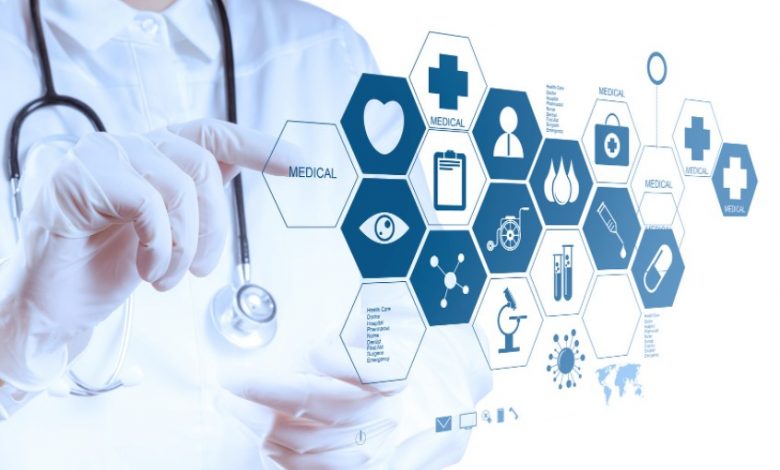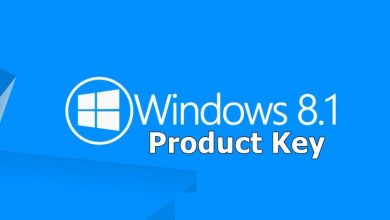
The Technologies Changing the Healthcare Industry
For people working within the healthcare industry itself, there is nothing more exciting than healthcare. Being able to help people with any issue that they may have, is deeply complex and difficult, but if administered right, it can also be a deeply rewarding process. These days it has become even more interesting in recent years because of the amazing power of technology to transform the way we diagnose, understand and treat different problems, whether mental, physical, or social. If you want to learn more about the types of technologies that people should focus on in the upcoming years, then you have come to the right place as this guide has been created to highlight some amazing innovations. Read on now for the technologies changing the healthcare industry.
5G
With the rollout of 5G mobile networks, which have attracted some controversy from conspiracy theorists, there is the possibility for deeply enhanced digital connection across the world. With the speed of up to 100 times faster than its predecessor, 4G, this can completely transform the way that digital medicine is administered towards more rural areas. The challenge for public health experts is to make sure that 5G is rolled out in as many areas as possible, so people all around the world are not left out.
Machine Learning
Machine learning provides many possibilities in the healthcare industry. Smart machines are quickly proving to be as accurate as health professionals in being able to quickly diagnose diseases as well as identifying ways to be able to predict them. Don’t expect the robots to actually replace doctors completely; however: it is more likely that they will rise to become a necessary tool for doctors as opposed to superseding them completely. After all, doctors are still needed to use their discretion to recommend the best possible course of care.
Telehealth
Due to the challenges posed by the coronavirus pandemic, telehealth has risen to be a necessary way of diagnosing people without them having to actually be in the hospital proper. Nonetheless, this technology has a lot of other fascinating use cases, such as reducing backlogs in hospitals proper, providing remote consultations and therapy, and being able to make sure that people in rural areas are able to access healthcare as easily as if they live in a major city. Expect telehealth to perhaps become the norm when it comes to the first point of care.
Blockchain
Hospitals process thousands of megabytes of data each and every day, making sure that they keep the records of all their patients secure and absolutely unchangeable. The secure passage of data may be easier to process if it is stored on the blockchain. However, there are some challenges with using blockchain technology, namely, the quite difficult strain that it has on the environment. Here’s hoping that in the future, blockchain will be able to be implemented in hospitals while still being energy-efficient.
Virtual Reality
When it comes to teaching people how to become doctors or nurses remotely, companies should definitely leverage the power of virtual reality. One example is the amazing opportunities that can be unlocked through the power of Google Glass, whereby a doctor can wear the technology in the middle of an operation and then beam the surgery straight into the laptops of studying students. It also allows patients to understand what is going on during an operation, allowing them to settle their nerves. For mental health treatment, it is a huge boon, allowing people with certain anxieties to simulate certain situations to be able to process their difficulties.
Online Learning
Due to the difficulties of actually going into a university in person as a result of the coronavirus pandemic, online learning has risen significantly in prominence. Now people can even take medical degrees in specializations such as nursing, surgery, consulting, and public health without even having to leave the house. This cuts down on commuting time and costs, the issues involved with relocation, and the cost of having to attend in-person university, as well as allowing people the possibility of finishing a degree around their own schedule. If you are interested in taking part in a degree online, Texas Woman’s University offers some amazing online FNP programs.
Wearable Tech
Healthcare is not just about diagnosing problems and treating them. It is also about giving people the resources in order to live a healthy lifestyle. One way to monitor people’s health and make sure that they are exercising correctly is through wearable tech. For example, smartwatches have risen in popularity because they can allow people to see how many steps they have walked each day and possibly meet the much-vaunted 10,000 steps.
Genome Sequencing
Ever since the Human Genome Project sequenced the gene in 2004, the possibilities involved within this field have absolutely skyrocketed. For example, being able to track variants of the coronavirus pandemic has been greatly helped by using much of the same technology. Nonetheless, this was still incomplete when it comes to fully understand how genes work within a sequence, meaning that there are many innovations left when it comes to discovering the secrets of human life.
Enhanced Drug Development
Last year something was achieved that few people thought was possible: several vaccines for the coronavirus were developed in under a year. Normally it takes several years for a drug to finally come to market, but here the process was significantly sped up due to the extraordinary public need. It is likely in the future that drug development will rise in popularity, with more interest from the government and private institutions to provide people with the best possible products. This could have massive ramifications when it comes to treating disease and creating vaccines as a result.
Nanotechnology
Nanotechnology has a whole host of great applications that can be applied across wide swathes of the healthcare industry. For example, nanoparticles have the possibility to target tumors and even carry the drugs needed to counteract their effects. They can also be used as sensors and accurately detect dangerous pathogens. With the meaning of nano getting stretched every year, it’s likely that these technologies will continue getting smaller and finding new uses in the years to come.
Robotics
Robotics has the potential to improve huge amounts of the healthcare industry significantly. In fact, they can completely transform the way in which a hospital is run. For example, service robots can automatically sense when cleaning needs to occur and quickly mop up any mess. In contrast, other robots can be used in the hospital bed space, allowing the patient to identify their needs and be serviced with minimum ease. Robots can also be used to transport deadly pathogens, minimizing the risk to large swathes of hospital staff!
3D Printing
When treating patients, hospitals are often incredibly pressed for time. This is especially true when it comes to getting the right materials to be able to successfully treat patients who are suffering fatal illnesses or injuries. Thankfully, with the rise of 3D printers, there is the real possibility that these materials can be printed on-site, saving a whole lot of valuable time. For example, 3D printing can be used to print ventilators on-site, a crucial tool in the fight against the coronavirus crisis.
Smart Staff Management
Despite the advances in technology, hospitals still rely on people such as nurses, cleaning staff, doctors, receptionists, guards and more, in order to run smoothly. For people who work as hospital managers, the days of using pen and paper to figure out who is working and when are definitely over. Now with online-aided smart staff management, they can have a full idea of how to staff the hospital properly, meaning that there is less likelihood of there being staff shortages. This is especially important nowadays due to the fact that many nurses and doctors have left the industry due to burnout from treating patients suffering from the coronavirus crisis.
Big Data
The amount of data that is in the world is exponentially rising. This means that there are going to be more and more opportunities to see the big picture when it comes to solving the world’s healthcare crises. Whether it comes to improving staffing, keeping electronic health records, alerting people in real-time, or tracking an epidemic, big data can help to give experts the tools they need to deal with these big problems.
Gaming Therapy
Video games might actually be seen as a health hazard by many, especially as they can be so addictive, but in a lot of cases, they have actually been proven to provide a new and different way to provide therapy. Whether it’s people working on broken bones or working on their PTSD through confronting fears in a game, gaming therapy is quietly emerging to be one of the most exciting new fields in the healthcare field.
Public Health Tracking Apps
If you have traveled through an airport recently, you have probably noticed that you have had to fill in a public health app. While this has risen in response to the coronavirus pandemic, it might be a possibility that governments across the world will want more people to fill in their health information upon arrival in order to track their health. Additionally, the QR code technology that is in use for these apps is likely to increase for a lot of other contactless and healthier digital options.
Chatbots
A lot of medical queries are actually quite basic and can be solved by an AI. One of the more interesting developments in recent years has been chatbots, where patients can talk to an automated machine and get rather good responses as to what they might be suffering and how they can alleviate those symptoms. This can be true for both mental and physical ailments. These chatbots can exist in person in the hospital itself or be downloaded via an app.
Online Conferences
The healthcare industry thrives upon conferences where people from different areas get together and share ideas, spurring on innovations and new possibilities. Nonetheless, due to issues surrounding the coronavirus pandemic, in-person conferences have become incredibly difficult to organize. Thankfully, some amazing solutions have popped up thanks to the power of online conferences, which can virtually recreate some of the same experiences. While it can’t quite beat the thrill of an in-person event, it can help to get more people involved who otherwise might not be able to be there, whether they are from halfway across the world or suffering from a disability.
Additionally, with more people conscious about climate change, which could in the future also represent a major health crisis, it is more important than ever that people minimize the amount of flying they partake in, meaning that online conferences, or hybrid events, seem like the more-ecologically friendly option.
Social Media
For a long time, hospitals have been seen as somewhat archaic institutions that it has been quite hard to get in contact with. Nowadays, thanks to the power of social media, hospitals can have a direct voice in the community. Additionally, it seems that everyone in the healthcare profession has their own social media feed when it comes to personal promotion. This is so important when it comes to public health, destigmatizing issues within the healthcare industry, and helping people with their problems. Simply put, if you are working in the healthcare industry, you need to have a social media account in order to make more of a name for yourself.
Conclusion
All in all, there are so many different ways that technology is currently changing and will change to further influence the healthcare industry that this guide simply didn’t have enough time to cover it all. The exciting part is that so many of these technologies, such as blockchain or genome sequencing, barely existed around 30 years. Therefore, it is likely that in the future new technologies will arise that no one has heard of as of now, making the future of healthcare one of the most exciting fields around.





